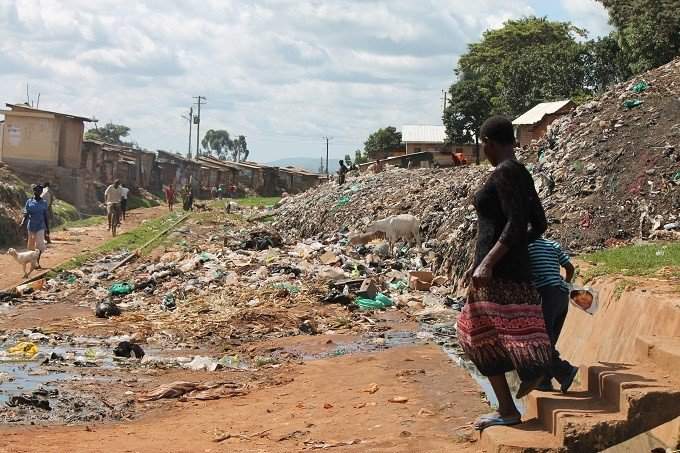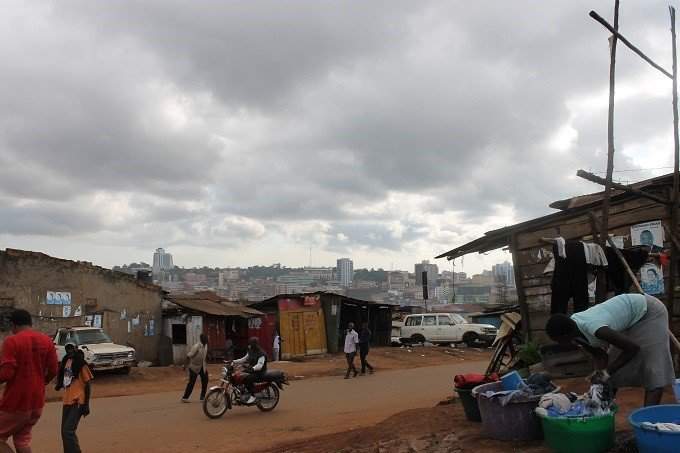The Hungarian medical mission to Africa is now over – read an interview with one of the members

Hot, humid tropical weather and a restless team of five Hungarians willing to help the people in Uganda. That was the 13th, one-month long medical mission, where the Hungarians cured those in need and gave lectures to the locals of Uganda. They set up temporary offices in an orphanage and schools also in Buganda. The African Hungarian Union’s medical mission has done a great job again. Read our interview with one of the mission’s members, Bernadett Kovács, coordinator of AHU.
AHU was founded in 2006 as a non-governmental, non-profit organisation with the aim to provide aid and development for the countries of Africa. Their mission has been to carry out the developments by using the certain countries’ own resources and active participation in the process, thus their help would result in a long-term sustainable change.
Aside Bernadett Kovács, as we wrote earlier, the members of the mission were MD Zita Bagdi, general doctor, MD Zsófia Kapi, who is an ear nose and throat specialist, Attila Gáspár, paramedic and Dániel Kovács, volunteer. They all signed up to provide help between April 4 and May 2 for people who have barely or never been seen by a doctor before.
Is there anything you can recall as an exceptionally significant experience that happened during the journey?
Completely accidentally I met a British man who had established a non-profit organization with the aim of supporting the education of children, who live there in Kampala, on the slum built on a landfill. Before our last day there, he showed us around their residence: three square meters for six people and no beds, and their restroom was that free little area next to the house. For all this they had to pay about 3000 HUF per month. Ever since I had been there, the visuals keep hitting my mind.

What should we know about Uganda? Why did you choose this country as your destination?
Uganda is a beautiful country in East-Africa, with a population about 3.5 times bigger than the Hungarian. It is rich in natural treasures, has a developing economy, but socially it really lags behind other countries. There is a huge contrast in Kampala, the capital city, which was built on hills and where the location of the houses illustrates the social statuses: the rich live on the top of the hill, while the poor people reside in the valleys. In the rainy season a lot of elder and really young kids, infants die because of the downpour, as they cannot escape the flood. Several other missions have been there already, even the Hungarian Trade and Cultural Centre is there, and one of its members has lived there for a few years now with the family, who could help us with the organisation.
What would you name as the greatest cultural difference you had faced there?
Their attitude and mentality was really different from the people in Hungary: they live joyfully, they are smiling a lot and they are really helpful. Their lives do not go around a schedule: when you agree on a meeting it probably will not happen at that time you originally discussed on.
How was this month challenging in a professional way, for, of course, you participated in the mission as the coordinator of AHU, but you are a nurse as well?
Our team has prepared for the typical African diseases, but there were some diseases which are no longer present in Hungary and we had only met them in our course books before. Such were the sexually transmitted diseases like syphilis, the tropical diseases, malaria, different kinds of helminthiasis and the tuberculosis.
These you mentioned are all long course and serious illnesses, how much of a solution could you provide then within one month?
We could give them drug treatment, and, most importantly, information to enlighten them, for often to prevent diseases it would be enough to apply some basic rules of hygiene. Therefore, we called the queueing people’s attention to this, hoping the information would spread.
Moreover, based on the many years’ experience, we would like to find a solution by establishing a hospital as part of AHU’s Health Centre Project. We already have a place for that, the foundation stone had already been placed in the village of Kapeke, which is three hours away from the capital.
Also, we aim to have several other hospitals around Kampala, which would be connected by a rescue network, thanks to which cooperation of the capital city’s hospitals could be possible in case of serious surgeries. Of course, though, our long-term goal is to train local staff who could operate these healthcare buildings.
How did the locals welcome you? Did you have any language difficulties?
They showed incredible trust and patience towards us. It was because there had been a free health care which could not work as it was supposed to do. Hence, they took the chance of us being there by turning to us with anything they felt like. Often, they complained about symptoms which they did not have at the time, only in order to get medicine, which they could not have had in any other way.
As the area was formerly an English colony, we could make ourselves understood by the people, but there was always an interpreter around in case someone was speaking the language of the tribe.
How demanding was this month’s working from morning until the evening?
There was a really great need for us, so the difficulty was that we simply could not finish the practice by the end of the day. Yet, we took care of averagely 100 people, though, we had to make sure quantity did not affect quality. We just wanted to give more and more but we had to take some rest in order to be able to provide help the next day as well.
In your blog, where you wrote about the exhausting days and experiences of the team, there was a post saying that one of the patients gave you a hen as a gift. Would you elaborate that?
Yeah, for me it was one of the hardest things to accept the gifts of the locals, as, because of our profession, we were all driven by giving help to those in need, but many times they gave us their daily food supplements in return, fruits, eggs and even hens to express how thankful they were. These gifts had the same value as giving your doctor a car in Hungary.
What is your dearest memory of the trip?
The most inspirational memory would be when I asked a local midwife whether I could watch her assisting a childbirth and surprisingly she did not only allow me to be there but under her supervision I could do most of the job. Eventually, the mother brought a healthy boy to the world. This was the greatest gift I got from the mission.

Based on her answers, as she recalled her experiences, it is rather visible that Bernadett Kovács, coordinator of AHU was totally taken away by the mission. During our conversation she already weemed to be in Uganda again, with whole of her heart. Unsurprisingly then, when asked whether she would go back again she did not hesitate to say yes. Surely, the African Hungarian Union will not impede it as they have been proving their willingness to do something great ever since their foundation 10 years ago.
Copy editor: bm
Source: Gabriella György







